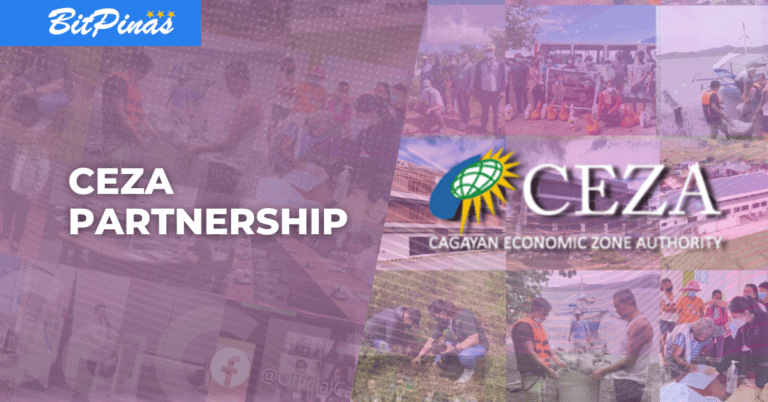Foxmont Capital Releases First PH Venture Capital Report
The report, which is the first of its kind in the Philippines, is a joint effort between Foxmont Capital Partners, PWC Philippines, QBO Innovation Hub, UBX, and Manila Angel Investors Network.

Philippine-based venture capital fund Foxmont Capital Partners launched the Philippine Venture Capital Report 2020 on the final day of the Philippine Startup Week virtual conference last November 27, 2020.
The report, which is the first of its kind in the Philippines, is a joint effort between Foxmont Capital Partners, PWC Philippines, QBO Innovation Hub, UBX, and Manila Angel Investors Network. It was formally released to the public during the fund’s conference session entitled “Investor Perspective: Beginner’s Guide to Fundraising and Valuation” presented by Santi Ongsiako, one of Foxmont’s principals.
“It is an honor and a privilege to present the country’s first venture capital report that focuses on investing activity and startup trends in the Philippines,” said Ongsiako, noting that the report details all investor and VC activity made in the Philippines during the first half of 2020 as well as the drivers of the startup scene going into the new year.
The launch of the report coincides with the global pandemic which has affected not only businesses but the way people in general utilize technology in conducting day-to-day activities. This has greatly influenced the growth of the tech industry despite a downturn in most other industries.
Ongsiako added: “Despite the economic burden that the pandemic has placed in this country and all others, we found one thing to be clear: that startup activity in the Philippines has matured significantly in a very short period of time. Over the past three years we’ve seen local conglomerates announce new venture funds, the establishment of venture capital and private equity associates in the Philippines, and the Manila Angel Investors Network—both created to organize and structure the investment side of the industry.”
This statement is in line with the country’s startup ecosystem jumping 17 positions to rank 53rd in Startupblink’s 2020 Global Rankings in a span of three years. On a per-city level, Metro Manila rose 830 positions among the top 1,000 cities in the world for startups, making it into the top 31 to 40 bracket in Startup Genome’s Emerging Ecosystems Ranking for the same period.
Philippine Venture Capital Report highlights
Currently, Metro Manila’s startup ecosystem is valued at USD$ 1.6 billion in terms of total exit valuations and startup valuations compared to 2018’s recorded USD$ 378 million. While the startup scene is seeing considerable growth, the Philippines is still lagging behind other Southeast Asian countries such as Singapore and Indonesia in terms of deal volume.
The first half of 2020 recorded USD$ 51.8 million in venture capital funding at the early-stage level, surpassing the whole of 2019 which recorded only USD$ 37.9 million. However, this is still nowhere near 2018’s record high of USD$ 110.2 million in completed early-stage VC deals.
Makati City still remains as the top destination for local startups to establish their roots, accounting for 29 percent of total deal volume in the country. However, the city lags behind neighboring cities in terms of actual deal value.
Although Mandaluyong only accounts for seven percent of total deal volume, the city has a lion’s share of funds raised with 60 percent of total funding raised or about USD$ 335 million over the past two and a half years, owing largely to Voyager Innovations.
This year alone, Voyager received USD$ 120 million in private equity funding with notable sources being Chinese conglomerate Tencent Holdings, American private equity firm KKR and Voyager’s parent company PLDT through newly-issued shares.
This maintains fintech as the best funded industry in the Philippines’ startup ecosystem in the last three years, accounting for more than half of the top 20 investment deals and the top three being all fintech.
The second highest valued deal completed in the first half of 2020 is Tonik Finance’s seed stage funding led by Sequoia Capital India and Point72 Ventures worth USD$ 21 million to launch the digital bank in the Philippines by Q1 of 2021. This is followed by Uploan which raised USD$ 10.2 million in a Series A funding from Infinity Ventures.
Across other industries in the top 20, two are in education (Edukasyon.ph, Avion School), one in restuarants/hotel/and leisure (CloudEats), and two in media and entertainment (Kumu, GoodWork.ph).
According to the Department of Trade and Industry, there are 136 fintech startups in the country as of early 2020 with this number projected to grow annually by 16 percent. The mix of niches are distributed as follows: 29 percent for alternative finance; 22 percent for payments; 19 percent for Blockchain; and 30 percent for remittances, investments and crowdfunding platforms.
Other active sectors in the startup space are information technology and software solutions, and transport and logistics. Sectors on the watchlist are e-commerce and education technology which have seen great adoption primarily due to the pandemic, as well as healthcare and medicine.
Impact of COVID-19 to the tech industry
Many sectors of the Philippine economy have greatly been affected by the pandemic, having been through one of the toughest lockdowns in the world, with most of the country in some form of quarantine since March of this year.
While it has been especially hard on industries such as tourism and hospitality, the technology industry has experienced a significant boom as companies expedite digital transformation strategies and individuals adopt disruptive solutions to adapt to the limitation in movement. Social video application Kumu, which raised a USD$ 5 million Series A in April, has seen a surge in usage during the pandemic. Co-founder and President Rexy Josh Dorado noted “While we were seeing solid growth prior to the pandemic, the Filipino community which makes up much of our user base longed for genuine social connection and our video platform allowed them to stay connected with friends and loved ones. Our audience/usage has grown over 200% in the last 6 months.”
Particular niches that have seen substantial growth are e-commerce and fintech with fintech being forecasted to increase its transaction value by 24 percent at the end of the year according to the Global Startup Ecosystem Report.
The report has identified key milestones that the country has achieved over the year in terms of increasing technological literacy:
- The adoption of e-learning and non-traditional teaching platforms
- The prevalence of remote work policies among both large corporations and SMEs
- The rethinking of operational processes particularly with MSMEs, utilizing digital solutions to improve business resilience
- The increase of digital-first businesses enabled by e-commerce platforms
- The transition of traditionally less tech-savvy government agencies to adopting digital solutions to continue providing services to the public
- The increase in tech literacy for older generations
In this light, particular companies that stood out during the pandemic are: HR and payroll solutions-provider Sprout Solutions; online grocery service MetroMart; on-demand personal services platform MyKuya; and telemedicine platform AIDE.
The full report is available to the public through the Foxmont Capital Partners’ official website.
This article is first published on BitPinas: Foxmont Capital Releases First PH Venture Capital Report





